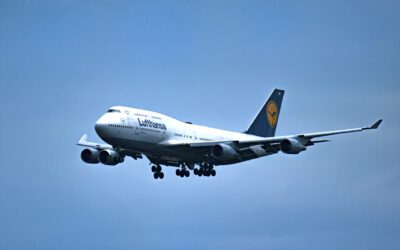These days, travelers have seemingly as many ways to book airline tickets as there are airlines. And, plenty of ways to make booking mistakes.
For those who love to research online, there are often some seriously good deals out there. On the other hand, for travelers with connecting flights, especially with different airlines, those good deals could end up to be very expensive indeed.
In this case, I declined to book a trip for a referred client. She was traveling around in Asia and found great fares on Bangkok Air’s website, along with some fares on a Thai Airlines site and others on Kayak.
Plus, as international travelers and travel agents alike may know, Asian carriers in particular often offer lower direct fares than through any other channel.
In this particular case, Bangkok Air’s fares were apparently less than half-price when purchased on their website. But, the client would need those flights to connect to and from other airlines, which could not be booked on the site.
In such a situation, there’s no liability for the first carrier if she misses a connecting flight or if there’s a schedule change. People have come to me with bookings they have done directly with two airlines where a connecting flight, after schedule changes, now arrives after the second flight departs. Sorry, but there is nothing an agent can do except suggest clients beg one of the airlines involved to relax their rules and rebook them.
While one never knows what an airline agent might do, the odds are that if a traveler checks in with a Bangkok Air ticket intending to connect to a Thai flight, the airline will not even check the luggage through. This not only means extra time at the connecting airport, it could mean paying a second checked bag fee.
In addition, traveling on two tickets for one connecting flight means that the second carrier may not show you checked in within the required time, even though you checked in hours earlier with the first carrier.
As to what happens if travelers miss a flight, that can vary. Worst case: The second airline invalidates your ticket as a no-show and you need to buy a new ticket, which could be the following day or later. Plus, at a more expensive airfare.
There can be similar problems for tickets booked with two different agencies or when one ticket is booked with an airline and a connection is booked separately. Even a trip booked together, but on separate tickets, can present problems.
What’s the best way to handle this situation?
If two tickets really save money and it’s all about costs, allow plenty of time — even an overnight between the two flights — and carry your bags on if all possible.
If time is the issue, and/or you really need to make it to your destination on schedule, consider booking the trip on one ticket, at least where connecting flights are concerned. This can be done through an online travel agent or brick-and-mortar agency.
When flights are booked as a single ticket, there’s no guarantee you’ll make a connection, but the airlines are supposed to help you in case of a problem and they are required to check your bags through.
There’s also the option of purchasing travel insurance, but read the policy carefully, especially for the dreaded “covered reason” clause. Again, choosing how much risk to assume is always a personal decision while traveling. Just don’t assume that all airline tickets are created equal. They’re not.
[poll id=”42″]



